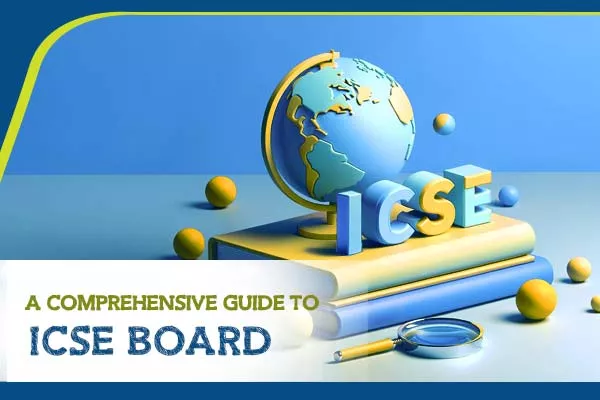Introduction to CISCE
What is CISCE?
The Council for the Indian School Certificate Examinations (CISCE) is a national-level private educational board in India. Renowned for its rigorous academic standards, CISCE oversees the Indian Certificate of Secondary Education (ICSE) for Class 10 and the Indian School Certificate (ISC) for Class 12.
The History and Legacy of CISCE
CISCE was established in 1958 to provide a curriculum aligned with global educational standards. Over the decades, it has become synonymous with quality education, fostering critical thinking and creativity among students.
Why CISCE Stands Out in Indian Education?
CISCE emphasizes a well-rounded education that goes beyond rote learning. Its focus on English fluency, practical knowledge, and extracurricular development distinguishes it from other boards.
Structure and Curriculum
Overview of CISCE’s Educational Levels
ICSE for Class 10
ICSE is a balanced curriculum that blends theoretical and practical learning. Students are tested on their understanding, application, and analytical skills.
ISC for Class 12
ISC builds on the ICSE foundation, offering specialized subjects that prepare students for higher education.
Subjects Offered Under CISCE
Core Subjects
Core subjects include English, Mathematics, Science, and Social Studies, ensuring a robust academic base.
Elective Subjects
Students can choose from a variety of electives such as Environmental Science, Computer Applications, and Arts, allowing them to tailor their education to their interests.
Co-Curricular and Extracurricular Opportunities
CISCE schools offer activities ranging from sports to performing arts, ensuring holistic student development.
Examination Pattern
Key Features of the ICSE and ISC Exams
CISCE exams are structured to test conceptual clarity and real-world application. The question papers often include case studies and problem-solving scenarios.
Internal Assessments and Practical Work
CISCE places significant weight on internal assessments and practical examinations, encouraging hands-on learning.
Grading System Explained
The board uses a percentage-based grading system, providing a transparent evaluation of students’ performance.
Benefits of Studying in CISCE
Emphasis on Comprehensive Learning
CISCE promotes analytical thinking, creativity, and effective communication skills, preparing students for global challenges.
Global Recognition of CISCE Qualifications
Universities worldwide recognize CISCE qualifications, making it an excellent choice for students aspiring to study abroad.
Flexibility in Choosing Subjects
Students can customize their academic paths with a wide array of subjects, accommodating diverse career goals.
Comparison with Other Educational Boards
CISCE vs CBSE
While CBSE focuses on STEM education and standardization, CISCE emphasizes language skills and holistic development.
CISCE vs State Boards
State boards prioritize regional curricula, whereas CISCE offers a more international perspective with English as the medium of instruction.
Challenges and Criticism
High Academic Standards: A Double-Edged Sword
While CISCE’s high standards foster excellence, they can also overwhelm students and parents.
Accessibility and Affordability Issues
CISCE schools are often expensive, limiting accessibility for students from lower-income families.
Recent Developments and Future Prospects
Digital Initiatives and E-Learning
CISCE has embraced technology, introducing online resources and digital assessments to enhance learning.
Proposed Changes in Curriculum
Plans to integrate more skill-based learning and align with the National Education Policy are on the horizon, promising a more dynamic future.
Conclusion
CISCE is a beacon of quality education in India, fostering well-rounded individuals prepared to tackle global challenges. Despite its challenges, its focus on holistic learning makes it a preferred choice for many.
